Construction Lawyer - Nice - Antibes - Cannes
The most frequently asked questions
by Me Zakine, Doctor of Law, Construction Lawyer
Master Zakine
Construction Lawyer
Doctor of Law - Lecturer at the University of Nice
I. Which lawyer for of worksconstruction, renovation, VEFA ?
Carrying out renovation work, building a house (CCMI or not), repair work or work following serious problems (roofing, seepage, water damage, etc.) is an act that requires particular vigilance on the part of an individual consumer who is new to the subject.
The intervention of a A lawyer, or at the very least the support of a lawyer or advice given in the context of a consultation, can be essential to finding out about your rights. from the signing of the quotation through to acceptance of the work (a crucial stage, the steps of which you need to be familiar with).
The goal is to prevent disputes that may arise during construction or works on the one hand and to know the means of action to which it is appropriate to resort in the event of difficulties.

Upstream, even before signing the individual building contract or a contractor's contract, the lawyer can check that with the customer to ensure that the contract signed complies with the clauses, deadlines and provisions of the General Terms and Conditions of Sale, etc.
The lawyer will also be able to advise you on the obligations of the builder or contractor: compliance with deadlines, calls for funds, obligation to draw up amendments in the event of modifications or additional requests, obligation to accept the consignment of 5% etc...so many questions which should alert the client as soon as the contract is signed.
Property developers are companies that develop real estate projects, ranging from single-family homes to large apartment buildings. They play a key role in the realisation of real estate projects by managing all stages of the process, from design to the sale of properties.
Masonry work is the construction of buildings using materials such as brick, concrete or stone. Property developers often use construction companies to carry out the masonry work required to build their projects.
The Code de construction de maison individuelle (CCMI) is a set of rules and standards that define the construction requirements for single-family houses. Developers must comply with this code to build homes that meet the required safety and quality standards.
A construction company is a company that specialises in building construction. Property developers often call on these companies to carry out the construction work on their projects. Construction companies can also manage the administrative and financial aspects of projects, working closely with property developers.
The construction law attorney also intervenes in disputes arising during construction or work: abandonment of the site, disorders noted by a bailiff and by the intervention of a building expert, worksite shutdown, unforeseen overcharging, deadlines not met, standards not respected, choice of materials not respected and not in accordance with the specifications (CCTP etc.), breakdown in communication with the contractor or builder.
Société de Construction is a company specialising in construction operations and the sale of property projects in the future state of completion. Its head office is strategically located. La Société de Construction undertakes to provide legal guarantees for each property project and to ensure that all guarantees are properly and adequately implemented. The Construction Company is committed to providing quality services to customers and to ensuring that all stages of the project are completed in accordance with technical standards and specifications.
Subsequently, the Lawyer may intervene during a delivery of works, of a detached house or an apartment acquired in VEFA to assist the client and verify that all the obligations of the developer, builder or contractor are respected.

In the context of the acceptance of the work, the construction lawyer explains to his client when the various guarantees are activated:
Guarantee of perfect completion,
- Biennial guarantee,
- Ten-year guarantee.
The lawyer also explains to his client the question of apparent defects, which must be the subject of reservations at the time of acceptance or within 8 days or less of the delivery of the goods or work.
The construction lawyer will also explain to his client that he is essential to be assisted by a bailiff and a building surveyor to take delivery of the work.
The lawyer can intervene downstream to resolve amicably or contentiously a dispute with the construction professional:
- Failure to remove any reservations within the one-year period covered by the completion guarantee: amicable agreement, followed by legal action if this fails,
- Action for interim relief in the event of defects not remedied by the construction professional,
- Letter of formal notice,
- Setting up a damage assessment when there is a fear that the damage is of a ten-year nature,
- Appearance of hidden defects : Liability action: action to rescind the contract or reduce the price.
The lawyer in construction law then intervenes initially to try to find an amicable solution to the difficulties which arise.
Failing this, it brings actions in summary proceedings or on the merits to engage the liability of construction professionals on the basis of Article 1792 of the Civil Code, which states that :
" Tny builder of a work is automatically liable to the owner for the cost of the work.In the event of a defect in the building, the owner or purchaser of the building may be held liable for damage, even if it results from a defect in the ground, which compromises the solidity of the building or which, affecting one of its constituent parts or one of its equipment, renders it unfit for its purpose. "
Being lawyer with a practice in real estate law Nice and all over France, here are a few examples of practical cases that Maître Zakine can handle in his practice.
She can help her clients to settle their disputes amicably or, if necessary, she can represent her clients in court.
II. The most frequently asked questions (this list is not exhaustive as there are many questions) :
- I want to undertake renovation work, what do I need to check in the quotation, the special conditions and the general conditions of sale?
- Can the builder change the price of my house?
- I am a victim of a building site abandonment? Is the Bailiff important? What are the necessary steps to resolve the situation?
- What do I need to know about the acceptance of a work or property?
- The promoter or builder refuses to allow me to deposit and requires me to pay the balance even before acceptance, what should I do? Can you help me to explain to him that his attitude is contrary to the rules of law?
- The building site is not progressing and I can see many problems even without going near it. What should I do?
- The building company has been placed in receivership and the work has stopped. What should I do?
- I'm hearing that the connection work is going to delay delivery of the building, even though I've read that the search for ways of connecting the wastewater, drainage and electricity networks should be carried out before the building work begins and should be specified when the application for planning permission is submitted. buildHow to act in this situation?
- The builder is not answering me about the progress of the work and there is a 9 month delay, what should I do?
- The developer or builder is not responding to my letters of formal notice, can you take care of this?
- I want to cancel my CCMI, can I do so even if the withdrawal period has passed if the builder is acting in bad faith?
- I did not know that I could deposit the 5% and the developer refuses to remove the reservations found, can I take legal action?
- The work to repair the seepage in the co-ownership What should I do as the Syndic hasn't replied? Can you send him a letter of formal notice? Is it possible to take legal action for an expert opinion?
- If the action for summary judgment highlights the inertia of the Syndicate and the Syndic, can they be held liable and awarded damages?
III. How to become a lawyer in construction law?
Become lawyer in construction lawis first and foremost to become a lawyer.
Subsequently, the lawyer decides to train in a specific branch of law and to make it his core activity.
To become Lawyer in construction law and town planning law, there are specific postgraduate courses (Master 2).
Etc....
A legal counsel of construction and town planning is generally involved in the following issues:
- Building permits,
- Challenging the refusal of planning permission,
- VEFA: reservation contract, deed of sale, delay, acceptance, reservations, non lifting of reservations
- CCMI: contract, construction monitoring, acceptance, reservations, non-removal of reservations
- Easements and rights of way,
- Encroachment: neighbourhood, neighbourhood dispute, demolition
- Joint ownership,
- Compliance with the co-ownership regulations,
- Compliance with the PLU by the builder or the individual who wishes to submit a building permit application,
- Sometimes requires compliance with the recommendations of the Architectes de Bâtiments de France
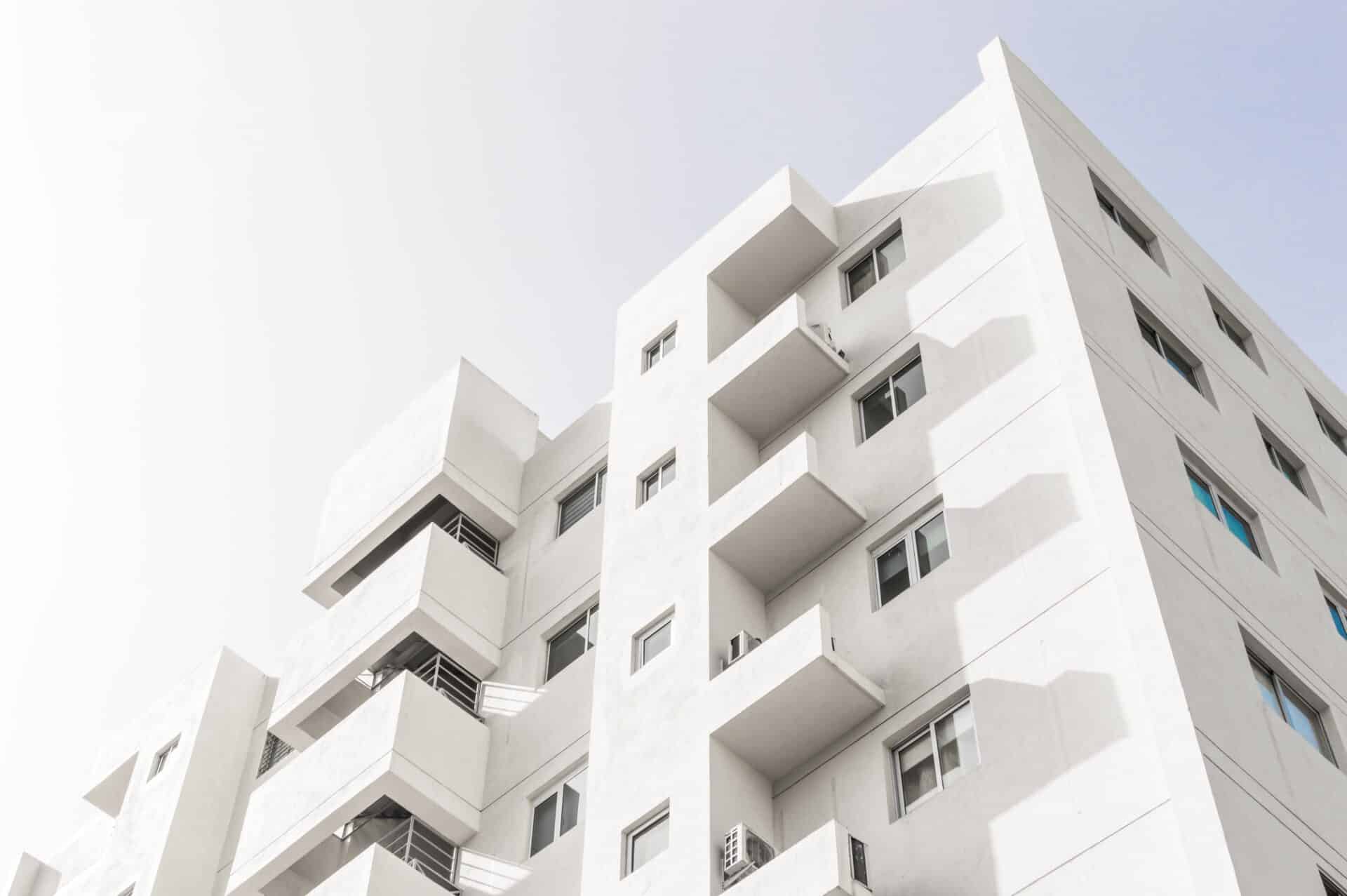

- Receipt of property,
- Delivery of a good,
- Insurance (ten-year guarantee, biennial guarantee or perfect completion guarantee),
- Work,
- Syndicate of co-ownership,
- Water damage,
- Defects in a construction or work,
- Abandoned building site,
- Refusal to pay for the work: why?
- Heavy renovation
- Building standard
- Compliance with the DTU,
- Diagnostics
- Collaboration with the bailiff, accompaniment by a building expert,
- Assistance to amicable expertise,
- Judicial expertise, sometimes with the assistance of a sapiteur or technical advisor (sometimes in the person of a building expert),
- Action for hidden defects,
- Urgent actions when urgent disorders and dangerousness: hourly referral,
The Lawyer in construction law is very often a lawyer in real estate law and deals with issues relating to :
- Co-ownership,
- Real estate sales: hidden defects, preliminary sales agreement, deed of sale, withdrawal period, sequestration, pre-purchase appraisal etc. ....
Furthermore, given the complexity of this law, it is crucial to train throughout one's professional career and to attend training courses delivered by approved training centres.
These courses offer certification.
For example, the Rencontres en droit de la construction held every year in October in Aix-en-Provence, is a not-to-be-missed event that brings together lawyers specialising in construction law, judges specialising in construction law, university professors specialising in this field and experts.
Current issues are developed and an overview of the past year's case law is given, allowing the construction lawyer to keep up to date with all the legal and case law developments in this field.
The Cabinet de Me ZAKINE can help you in all matters relating to real estate law, town planning and construction law and co-ownership law, which frequently give rise to construction issues.
1. What is a construction lawyer?
A a lawyer specialising in construction is a legal professional which focuses on issues related to the construction industry. These professionals have knowledge in areas such as contracts, bidding processes, dispute resolution, insurance coverage and liens. They provide guidance and advice to contractors, developers, engineers, lenders, architects and other stakeholders involved in construction projects. Construction lawyers also represent clients in court and arbitration proceedings and settlement negotiations. In addition, they may provide construction-related legal services to other lawyers or professionals who need help with their projects. THE lawyers specializing in the field of construction typically have expertise in a particular jurisdiction's laws related to construction, such as those governing public works. They are up to date with the latest industry trends and can provide practical solutions to disputes and other issues. Construction lawyers are essential to ensuring that projects are completed on time and on budget, while protecting their clients' interests.
2. What do construction lawyers do?
The lawyers specialising in the construction sector provide advice legal services and representation in connection with construction projects. They assist clients in drafting, reviewing and negotiating contracts for the purchase or sale of goods or services related to a construction project. They also advise clients on insurance coverage, zoning requirements, contract disputes, liens, bidding processes and other areas of law that affect construction projects. Construction lawyers represent clients in court and arbitration proceedings, as well as in settlement negotiations. They also provide advice to other legal professionals on construction-related matters. Construction lawyers generally have an in-depth knowledge of the public works laws of a particular jurisdiction, which enables them to resolve disputes quickly and efficiently. In addition, construction lawyers are aware of industry trends and can help negotiate disputes without resorting to litigation. This reduces the time and expense involved in resolving disputes, while protecting their clients' interests.
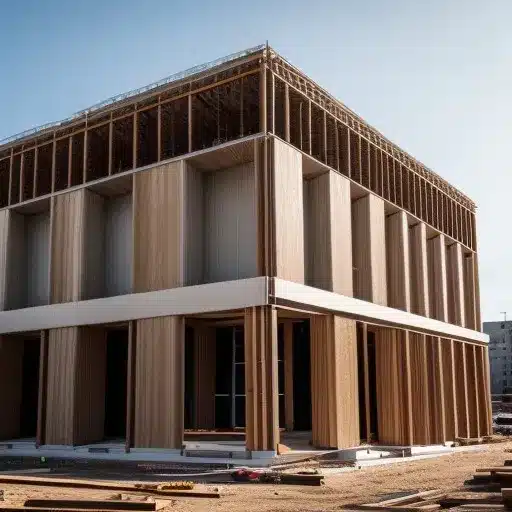
3. What should you look for in a construction lawyer?
When you are looking for a lawyer specialised in law construction law, it is important to take into account their expertise and experience in this field. This includes their knowledge of the laws relating to public works, contract disputes and other areas of construction law. It is also important to know whether the lawyer is familiar with local practices and procedures in your jurisdiction. In addition, you should find out about the lawyer's experience in representing clients before the courts or in arbitration proceedings, as well as his or her success rate in settling disputes without going to court.
Read a real case in VEFA treated by Me Zakine
Extract: " "There is no communication. The promoter does not respond to my emails and letters of formal notice. "In any case, I re-read the contract and the promoter is within his rights. There is a clause that allows him to justify his delay. are the classic phrases I hear most from the promoter and the clients.
3. What are the advantages of working with a construction lawyer?
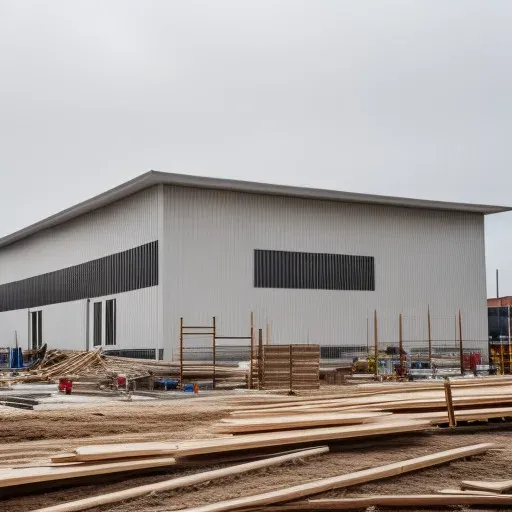
Working with a construction lawyer offers a number of advantages. The lawyers specialising in construction law are familiar with the laws and regulations governing public works and construction projects, as well as industry trends. This enables them to provide legal advice tailored to each project or dispute. In addition, construction lawyers are experienced in drafting, reviewing and negotiating purchase or construction contracts. Construction lawyers can provide advice on insurance coverage, zoning requirements and tendering processes. In addition, construction lawyers can provide expert advice on insurance coverage, zoning requirements and tendering processes. In addition, they can represent clients in court or arbitration proceedings, as well as in settlement negotiations. This makes them an invaluable resource for resolving disputes quickly and efficiently. Finally, construction lawyers are familiar with local laws and procedures, enabling them to provide advice tailored to each project. Working with a construction lawyer can help you protect your interests and reduce the time and expense of resolving disputes.
4. How to find a lawyer specialised in construction law?
When you are looking for a lawyer specialised in law The best place to start is by asking family and friends for recommendations. You can also look for lawyers specialising in construction law in consultancy legal directories or by searching online. In addition, you can contact your state bar association to find qualified lawyers in your area. It's important to meet the lawyer and discuss his or her skills and experience before making a decision. In addition, reading reviews or talking to former clients is also a great way to learn about the lawyer's experience and success rate. Finally, don't forget to ask for references from other lawyers with whom the lawyer has worked in the past. By taking all of these steps, you can ensure that you are working with an experienced lawyer.
5. What should I look for in a construction lawyer?
When choosing a construction lawyer, it is important to consider their experience and qualifications. You should look for a lawyer who has a thorough knowledge of the laws and regulations relating to public works and construction projects, as well as industry trends. In addition, you should ask about the lawyer's experience in contractual disputes and other areas of construction law. It is also likely that he or she has expertise in insurance coverage, zoning requirements and the bidding process. You should also ask the lawyer about past cases and success rates. Finally, you should make sure that the lawyer is familiar with local laws and procedures, so that he or she can provide advice tailored to your project. By following these steps, you will be able to find a qualified construction lawyer.
6. How do I know if a construction lawyer is right for me?
Once you have identified a few potential candidates, it is important to meet with each lawyer and determine if they are a good fit for your legal needs. You should ask questions about their qualifications and experience in construction law, as well as their knowledge of local laws and regulations. In addition, you should ask about their past cases and their success rate.
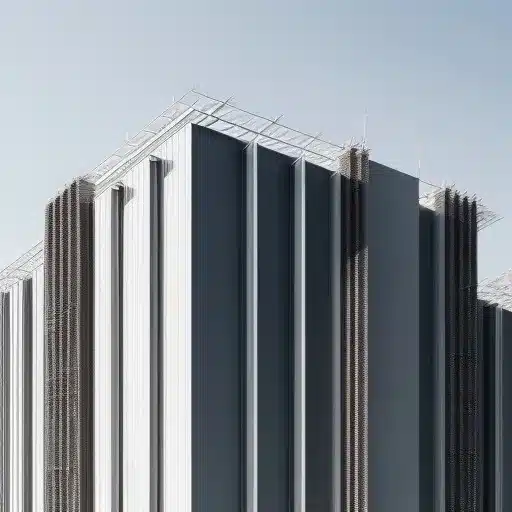
7. What are the most common questions that construction lawyers are asked?
When people ask questions to lawyers specializing in construction law, they typically want to know about their qualifications and experience. Other common questions include understanding local laws and project-related liabilities, as well as advice on filing a claim or resolving a dispute. People may also inquire about applicable insurance coverage, zoning requirements, the bidding process, and contract negotiations. Finally, they may inquire about the attorney’s past cases and success rate. By asking a few key questions, you can determine if a construction attorney is right for you.
8. How often should I consult my construction lawyer?
It is important to consult your a lawyer throughout the duration of your project to ensure that all legal requirements are followed and to advise you on any problems that may arise that may arise. Depending on the complexity of your project, you may wish to meet with your lawyer every few weeks or even every month. In addition, it's a good idea to contact your construction lawyer if there are any changes to local laws or regulations that could affect your project. By keeping in regular communication you can ensure that your project is compliant and on track for completion.
8. What are the tips for working with a construction lawyer?
It is important to consult your lawyer throughout the life of your project to ensure that all legal requirements are followed and to receive advice on any problems that may arise. Depending on the complexity of your project, you may wish to meet with your lawyer every few weeks or even every month. In addition, it is a good idea to contact your construction lawyer if there are any changes to local laws or regulations that could affect your project. By staying in regular communication you can ensure that your project is compliant and on track for completion.
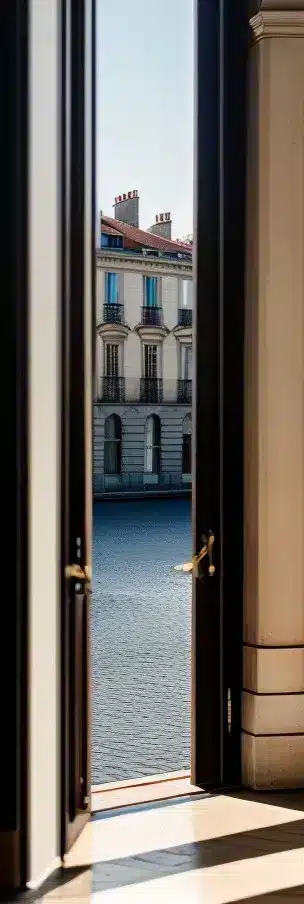
4. Why choose us to defend you?
Your interest is the one that guides Master Zakine. Master Zakine provides you with advice and assistance.
Using a lawyer means you can be sure that your rights are respected, and that the law firm you have chosen is specialised in the required field.
Mr. Zakine works on complex cases with major promoters (see an article in Nice Matin 11 December - BNP Paribas - Marenda Lacan on Nice Matin for a VEFA dispute ). Maître Zakine is representing several purchasers of this VEFA development against the developer BNP Paribas.
In the event of a dispute, Maître Zakine asserts your rights with strength and humanity.
The Cabinet d'avocat Zakine is based in Antibes registered with the Grasse Bar (the Nice Bar is next door). Maître Zakine advises on CannesGrassse, Mougins ) and throughout France.
Maître Zakine is used to working remotely (video, electronic signature, secure file exchange platform).
The Cabinet Cécile Zakine is at your disposal

